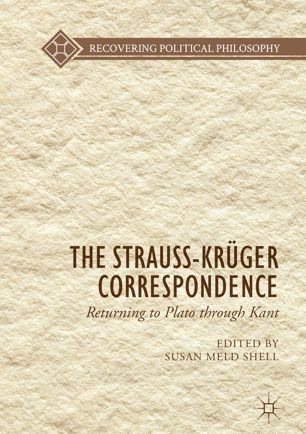

Most ebook files are in PDF format, so you can easily read them using various software such as Foxit Reader or directly on the Google Chrome browser.
Some ebook files are released by publishers in other formats such as .awz, .mobi, .epub, .fb2, etc. You may need to install specific software to read these formats on mobile/PC, such as Calibre.
Please read the tutorial at this link. https://ebooknice.com/page/post?id=faq
We offer FREE conversion to the popular formats you request; however, this may take some time. Therefore, right after payment, please email us, and we will try to provide the service as quickly as possible.
For some exceptional file formats or broken links (if any), please refrain from opening any disputes. Instead, email us first, and we will try to assist within a maximum of 6 hours.
EbookNice Team

Status:
Available5.0
18 reviewsThis book presents the first full translation of the correspondence of Leo Strauss and Gerhard Krüger, showing for each the development of key and influential ideas, along with seven interpretative essays by leading Strauss scholars. During the early to mid-1930’s, Leo Strauss carried on an intense, and sometimes deeply personal, correspondence with one of the leading intellectual lights among Heidegger’s circle of recent students and younger associates. A fellow traveler in the effort to “return to Plato” and reject neo-Kantian conventions of the day, Krüger was also a serious student of Rudolf Bultmann and the neo-orthodox movement in which Strauss also took an early interest. During the most intense years of their correspondence, each underwent significant intellectual development: in Krüger’s case, through a penetrating series of studies of Kant and Descartes, respectively, ultimately leading to Krüger’s conversion to Catholicism; and, in Strauss’s case, through the complex stages of what he subsequently called his “reorientation,” involving what he for the first time calls “political philosophy.” Readers interested in tracing the development of Strauss’s thoughts regarding a theological alternative that he found helpfully challenging—if not ultimately compelling—will find this correspondence to be an accessible point of entry.